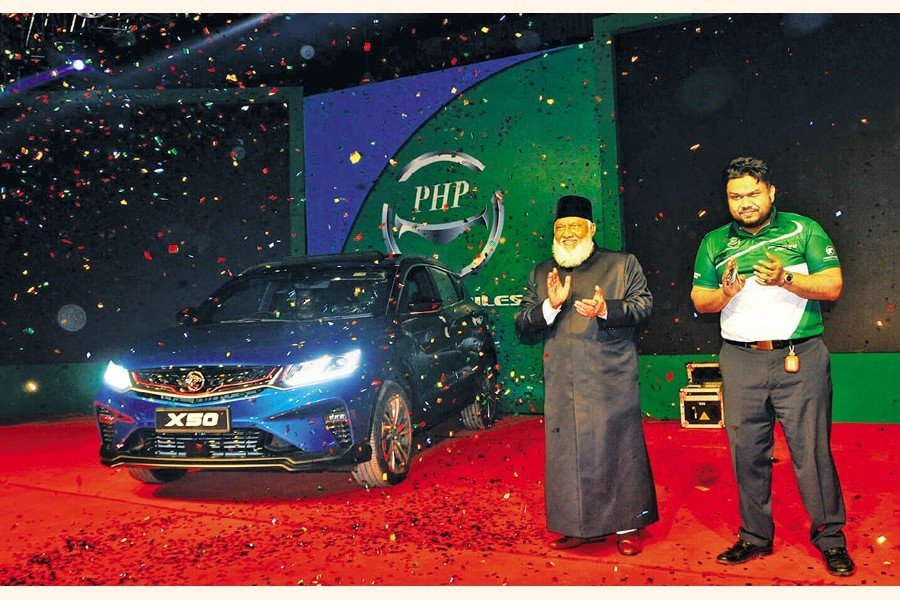Battery Rickshaws in Bangladesh: A Blessing or a Curse?

Battery Rickshaws in Bangladesh: A Silent Transport Revolution
In the fast-paced streets of Bangladesh, a silent revolution is shaping the future of urban transportation—battery-powered rickshaws. Known locally as e-rickshaws, these vehicles are rapidly replacing traditional pedal-powered rickshaws, offering a faster, easier, and more convenient mode of travel.
But while battery rickshaws provide livelihood opportunities and ease traffic congestion, they also bring concerns related to safety, electricity consumption, and environmental hazards. As their numbers grow, a debate has emerged: Are battery rickshaws a blessing for Bangladesh, or are they becoming a curse?
This article explores the impact of battery rickshaws from multiple angles, weighing their benefits against the challenges they present.
The Rise of Battery Rickshaws in Bangladesh
The history of battery rickshaws in Bangladesh can be traced back to the early 2000s when local mechanics and entrepreneurs began modifying traditional cycle rickshaws by installing electric motors and lead-acid batteries. This small innovation led to a transportation boom, with thousands of battery rickshaws quickly appearing in urban and semi-urban areas.
By 2024, it was estimated that over four million battery rickshaws were operating across Bangladesh, making them one of the most widely used transport options in cities like Dhaka, Chattogram, Narayanganj, and Rajshahi.
Their affordability, accessibility, and ease of operation contributed to their rise. Unlike pedal-powered rickshaws, which require significant physical effort, battery rickshaws allow drivers to cover longer distances with less fatigue, making them a preferred choice for both operators and passengers.
However, this rapid expansion has also raised concerns, leading to discussions on regulation, environmental impact, and safety measures.
Economic Benefits: A Lifeline for the Poor
One of the most significant advantages of battery rickshaws is their economic contribution. These vehicles have provided employment opportunities for millions of people, particularly those from low-income backgrounds.
For many rickshaw pullers, transitioning from pedal-powered to battery rickshaws has been life-changing. The physical strain of pulling traditional rickshaws often led to health issues and exhaustion, making the job extremely difficult, especially during extreme weather conditions.
A young e-rickshaw driver from Dhaka shared his experience:
“Pedal rickshaws are very difficult to operate, especially under the scorching sun or heavy rain. With a battery rickshaw, I can earn more without suffering from physical exhaustion.”
Additionally, battery rickshaws have boosted local businesses by improving transportation efficiency. Small shop owners and vendors rely on these rickshaws to transport goods quickly, enhancing economic activity in urban centers.
Battery rickshaw garages have also flourished, providing jobs to thousands of mechanics and garage owners who maintain and repair these vehicles.
However, the economic benefits come with challenges, particularly illegal operations and unfair competition with other transport modes.
Environmental Impact: Green Solution or Silent Polluter?
At first glance, battery rickshaws seem like an eco-friendly alternative to fuel-powered transport. Since they run on electricity rather than petrol or diesel, they do not produce direct emissions.
However, there is a hidden environmental cost—the improper disposal of lead-acid batteries.
Most e-rickshaws in Bangladesh rely on lead-acid batteries, which have a short lifespan of 6 to 12 months. When discarded improperly, these batteries contribute to toxic lead pollution, posing severe health risks.
According to a report, Bangladesh ranks among the top countries worst affected by lead pollution, with serious consequences for public health, including neurological damage and developmental disorders in children.
Experts suggest that switching to lithium-ion batteries could reduce environmental harm, but high costs remain a barrier. Without proper recycling and disposal methods, battery rickshaws may create more environmental problems than they solve.
Safety Concerns: A Growing Hazard on the Roads
The rapid rise of battery rickshaws has led to growing safety concerns.
Unlike cars, buses, or motorcycles, most battery rickshaws are unregulated. Many are homemade or locally modified, with poor braking systems, unstable designs, and a lack of safety features like proper headlights and turn signals.
Additionally, many drivers operate without proper training or licenses, increasing the risk of accidents and traffic congestion.
Authorities have attempted to ban or regulate battery rickshaws in certain areas, but enforcement remains inconsistent. In November 2024, the High Court issued an order to ban e-rickshaws in Dhaka, citing safety and traffic issues. However, after protests from drivers and garage owners, the Supreme Court temporarily lifted the ban, allowing rickshaws to continue operating.
The lack of clear regulatory policies has led to confusion, with local governments struggling to manage the situation effectively.
Without strict regulations, battery rickshaws will continue to pose serious risks to both passengers and other vehicles on the road.
Electricity Consumption and Illegal Power Use
Battery rickshaws require frequent charging, often consuming large amounts of electricity.
Many charging stations operate illegally, drawing power from the national grid without authorization. This results in significant revenue losses for utility companies and contributes to electricity shortages in some areas.
Studies estimate that over 90% of rickshaw garages use unauthorized connections, leading to millions of dollars in annual losses.
To address this issue, experts propose establishing official charging stations with prepaid metering systems, ensuring legal and efficient electricity use.

The Regulatory Dilemma: Ban or Reform?
The biggest debate surrounding battery rickshaws is whether they should be banned or regulated.
Critics argue that these vehicles:
- Cause traffic congestion in already overcrowded cities.
- Operate illegally without proper documentation.
- Pose safety risks due to unregulated modifications.
- Contribute to electricity theft and environmental pollution.
However, outright banning battery rickshaws would disrupt the livelihoods of millions and leave a significant gap in public transport.
Instead of banning, experts suggest implementing structured regulations:
- Licensing & Registration – All battery rickshaws should be officially registered, and drivers should be required to obtain proper licenses.
- Standardized Designs – Only government-approved models should be allowed on the roads, ensuring safety and stability.
- Designated Routes & Lanes – Battery rickshaws should be restricted to specific areas to reduce congestion in major cities.
- Safe Charging Stations – Legalized charging stations should be set up to prevent electricity theft and overloading of the power grid.
- Battery Recycling Programs – Proper systems should be introduced to safely dispose of and recycle lead-acid batteries, reducing environmental harm.
With proper regulations, battery rickshaws could be transformed into a safe, efficient, and sustainable mode of transport rather than an uncontrolled problem.
Blessing or Curse?
Battery rickshaws have revolutionized transportation in Bangladesh, offering economic benefits, affordability, and convenience.
However, they also present serious challenges related to safety, environmental damage, electricity theft, and regulatory issues.
Rather than banning them entirely, smart regulations and policy changes can ensure that battery rickshaws become a true blessing rather than a curse.
Call to Action:
- Support safe regulations to improve rickshaw design and operations.
- Choose sustainable transport to reduce environmental impact.
- Encourage responsible battery disposal to prevent pollution.
By working together, we can transform battery rickshaws into a safe, sustainable, and reliable mode of transport for the future of Bangladesh.






